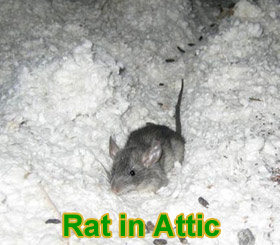Dead rat disease risks how to remove the smell.
Rats attic disease.
If left unattended the rats in the attic will multiply by the day as they continue to breed and reproduce at will making the risk of disease spreading in your home much worse.
Droppings they multiply very fast and tend to leave droppings in their wake.
Rats mice scratching in the attic rats mice scratching in the walls rats mice leaving droppings everywhere gnawing on electrical wires concerns over health risks.
Finding and removing rat carcasses in the attic if the rat has died in your attic you will often see the signs of the animal s presence and smell the carcass but finding it can sometimes be a little tougher.
Chew marks rats have the tendency to chew on things such as cables and wires.
The dangers of rats in your attic health risks.
In humans it causes a wide range of.
Here is the evidence of having rats in the attic.
Once inside the home and attic rats and mice cause the following problems.
What s the best way to deal with a rat infestation in your attic.
As rats tend to go to somewhere they feel safe when they are in pain they will.
Worldwide rats and mice spread over 35 diseases.
The feces and urine left behind by a norway rat in an attic could spread harmful diseases.
Evidence of roof rats.
Questions about how to get rats out of the attic are in the top 10 inquiries at professional exterminator offices but rats are one pest that homeowner s should take care of for themselves.
These include hantavirus pulmonary syndrome leptospirosis hemorrhagic fever with renal syndrome and rat bite fever.
Leptospirosis a bacterial disease that affects humans and animals who come into contact with rat poop.
Although rats are primarily thought of as health risks roof rats can also cause serious damage to.
To put it into perspective a pair of rats can have between 5 to 7 litters per year with each litter resulting in 8 to 12 pups a term used for baby rats.
Rats are one of the best disease carriers in the animal kingdom and were directly responsibly for the.
It is caused by bacteria of the genus leptospira.
These diseases can be spread to humans directly through handling of rodents through contact with rodent feces urine or saliva or through rodent bites.
Rats can spread disease through their urine and droppings and a rat bite can also cause renal failure in humans and spread a number of diseases to your pet including rat bite fever says.
Because the attic is typically such a confined space it is dangerously easy to inhale infected particles of.

